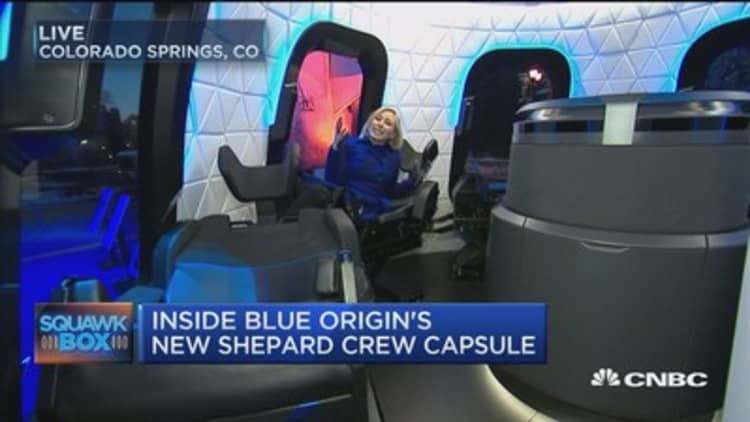A new space age is emerging, and the so-called space economy will become a multitrillion-dollar industry within the next two decades, Goldman Sachs is telling its clients.
More than 50 venture capital firms invested in space in 2015, driving more VC dollars into the sector in that year alone than in the prior 15 years combined, analyst Noah Poponak wrote in a Tuesday note to investors. Those firms included SoftBank, Fidelity, Bessemer and the VC arm of Alphabet's Google, among others.
"While relatively small markets today, rapidly falling costs are lowering the barrier to participate in the space economy, making new industries like space tourism, asteroid mining and on-orbit manufacturing viable," Poponak said.
Since 2000, more than $13 billion has been poured into space-related start-ups and established companies, Goldman's research shows. Key players receiving funds are broken down into satellite manufacturers, like Boeing; launch providers, like Lockheed Martin; and operators, such as AT&T or Dish Network.

Asteroids could be the new equities
But investors are starting to look past the well-established industries within space, such as development of satellites and launchers, and into less-established ventures like space mining and tourism, Goldman wrote.
"We believe space mining is still a long way from commercial viability, but it has the potential to further ease access to space and facilitate an in-space manufacturing economy," Poponak said.
He went on to say that: "Space mining could be more realistic than perceived ... a single asteroid the size of a football field could contain $25 billion to $50 billion worth of platinum."
It's important to note that former President Barack Obama signed the Commercial Space Launch Competitiveness Act, which essentially opened the door for U.S. companies to explore, extract and recover space resources. This is what prompted leading tech figures like Elon Musk — with SpaceX — and Jeff Bezos — with Blue Origin — to join the so-called race to space.
President Donald Trump and his administration are reportedly considering a plan for the U.S. space program that calls for a "rapid and affordable" return to the moon by 2020. Though many in space-related industries, including Musk, have voiced concerns over Trump's proposals.
Nonetheless, Goldman believes "profit pools" are being created in areas of the universe that have yet to be explored — literally. Space is becoming a new economy, "with substantial new opportunity, long term."


